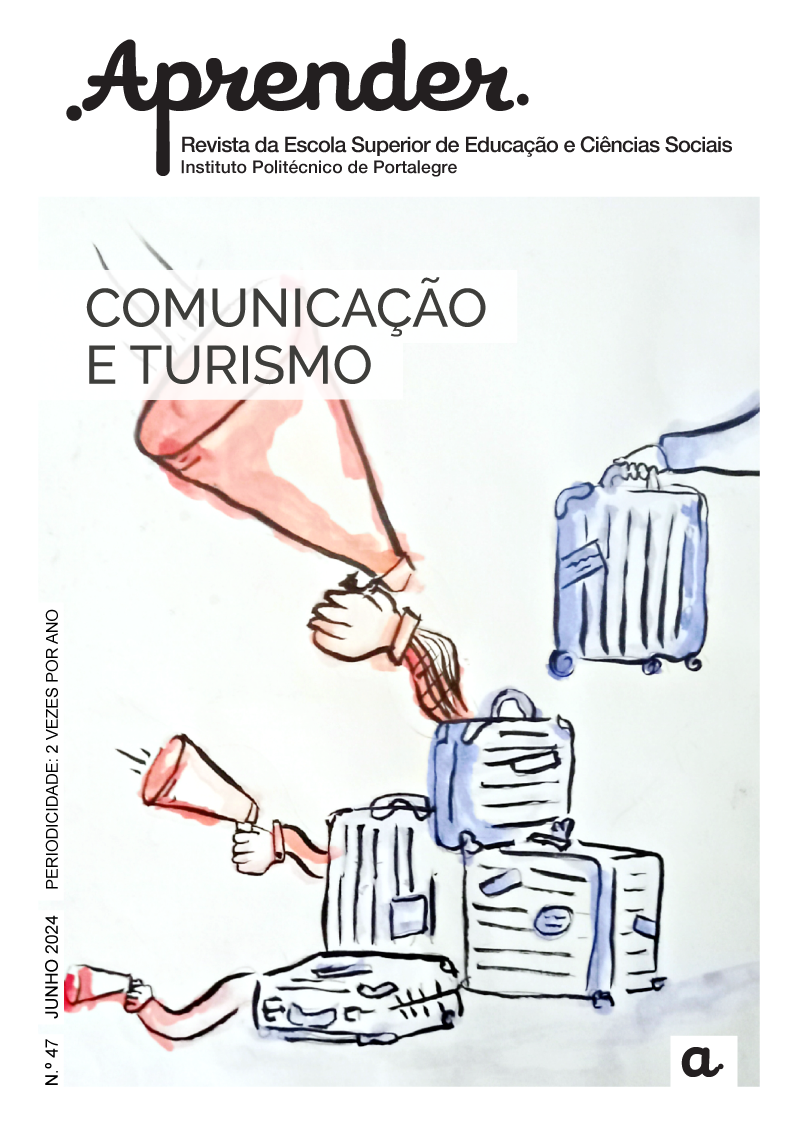Editorial
DOI:
https://doi.org/10.58041/aprender.217Abstract
Communication and tourism are intrinsically linked, playing mutually enhancing roles. The role of communication is fundamental throughout the consumer travel cycle, which has become even more so with the digitalisation of society and the tourism sector. Before the trip, communication is key to promoting destinations and tourism products through digital and traditional channels and helping visitors choose and plan their trip. During the trip, communication continues to be key to creating memorable experiences, facilitating interaction with tourism agents and the enjoyment of heritage and understanding of local culture. After the trip, communication is essential for evaluating and continually improving the provision of tourism services and the reputation of tourist destinations.
This issue of Aprender seeks to analyse how tourism deals with the act of communication, whether in the field of entertainment, advertising or the new media. The aim here is not to draw up an exhaustive picture, but rather to combine the analyses of researchers from different specialisms who think about the problems of tourism and communication in contemporary society.
The Central Theme begins with an interesting interview with Rasa Jodienė, a professor at Utenos Kolegija (Utena Higher Education Institution) in Lithuania with 34 years' teaching experience, who gives an excellent reflection on the importance of soft skills in the tourism sector, especially communication, and the need for tourism and hospitality courses, whether in Portugal or Lithuania, to train students in communication skills so that they understand and respect the culture and social aspects of different countries.
History has not been forgotten. Mafalda Ferro, president of the António Quadros Foundation and granddaughter of António Ferro, shared some of her grandfather's legacy, highlighting the contribution of the writer, journalist and promoter of the Estado Novo's cultural policy to the history of tourism in Portugal.
Noronha's text, "Virtual Alentejo: Analysis and reflection on a 360º virtual tour", presents a relevant, pertinent and very topical topic in the light of the latest challenges in Tourism and Information and Communication Technologies, particularly in the adoption of virtual and augmented reality resources for the communication/promotion of tourist destinations.
For his part, Goldoni proposes a reflection on the imaginary that the telenovela Fuzuê, on the Globo network, brings in relation to the tourist attractions of Rio de Janeiro, Brazil. A contribution entitled "Do guião da telenovela ao roteiro da viagem: uma análise do turismo cinematográfico perante a telenovela Fuzuê" (From the telenovela script to the travel itinerary: an analysis of cinematographic tourism in the light of the telenovela Fuzuê) aims to understand how Globo presents these tourist attractions and whether there is an incentive to visit these places.
The article by Vendeiro and Bonixe, entitled "The participation of digital users in the tourism sector - analysis of comments on the social networks of Turismo do Centro", is based on Carpentier's theoretical contribution on the concept of participation in the digital space, as distinct from access and interaction, and seeks to understand how users use this possibility in the context of the social networks of an organisation in the tourism sector.
Finally, a review of the book "Digital Tourism. A Communication for Intermittent Nomads", published in 2023 by Livros Horizonte, which makes an excellent scientific contribution, relevant to professionals and students in the field of Tourism and Communication, through different approaches and focusing on various contexts of the interconnection between one of today's most important communication channels - social networks - and Tourism.
Adriana Guimarães | Gorete Dinis | Márcia Grilo








